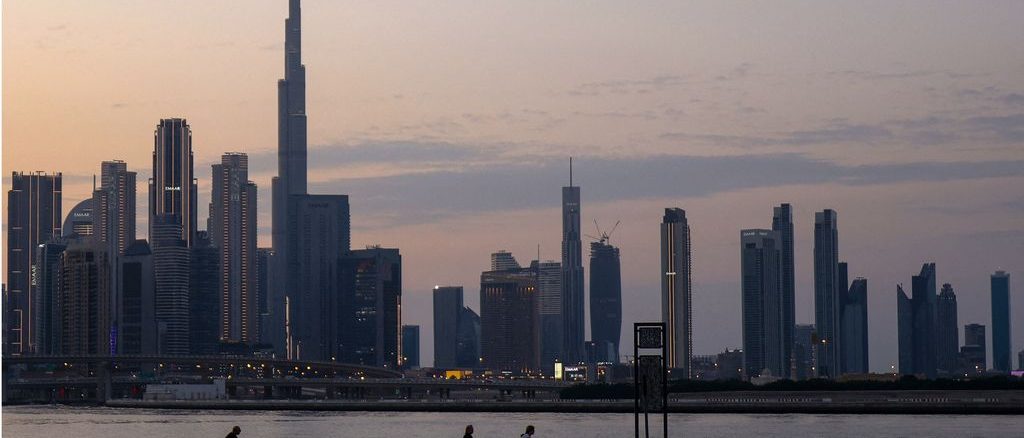
Skepticism and hope on the eve of the Dubai climate summit: what is at stake?
We have seen and felt the consequences of climate change all over the world this year: floods, drought, weeks of heat waves on land and in the sea. Heat records were broken in several places, and 2023 will probably be the hottest year ever recorded. What needs to be done to ensure it doesn’t get worse?
That question is once again central to the UN climate summit, the 28th, which starts at the end of this week in Dubai. More than 200 countries are negotiating at ‘COP 28’ about the steps they must take to keep warming within limits: in any case well below 2 degrees and preferably below 1.5 degrees, as agreed in Paris in 2015 .
The chance that this will succeed is becoming smaller and smaller. A recent report from the UN shows that the climate is heading towards almost zero with the current policy 3 degrees pre workout. Is there anything that can be done about this? Four questions about a climate summit in turbulent times.
What are the expectations?
It will be a tough summit, Wopke Hoekstra expects. As European delegation leader, he will try to raise the ambitions as high as possible. But that won’t be easy. Even in quiet times it is difficult to get on the same page, Hoekstra said at a press briefing last week.
The interests of oil states, emerging economies, developing countries and small island states are simply far apart. But now, with the wars in Ukraine and Gaza and tensions between America and China, things are becoming “infinitely more difficult”, Hoekstra thinks.
Just this morning the news came that the American president Biden not coming to the climate summit. He would have been too busy with the war in Gaza. Last week, the US and China, the world’s biggest emitters, did conclude one deal in which they recommit to the Paris climate agreements.
They also emphasized that more climate action is needed. An important signal, also to other countries. This means that Russia is expected to be less likely to act in an obstructive manner, so as not to antagonize friendly China.
What’s it all about?
In Paris, countries agreed to have their climate plans examined every five years to see whether they also align with their climate goals. This year, for the first time since 2015, such an interim balance, the ‘Global Stocktake’, has been made. This shows – surprise – that most countries are not yet on track.
So more needs to be done, but what exactly? That’s what Dubai is about. In any case, there is one point on the agenda that most countries can agree with: tripling sustainable energy by 2030.
A condition for this is that there is enough financial and technological support to continue to meet the energy needs of rapidly emerging economies.
Another important point is fossil fuels. Global warming is largely caused by the burning of oil, gas and coal. If it were up to the European delegation, there would be one section included in the final text about stopping fossil fuels, with an exception for emissions that can be offset or captured. Remarkably, it would be the first time that such a text on all fossil fuels would be included in a final agreement of a climate summit.
And that especially in the oil-rich Emirates?
Attempts have been made at several climate summits to break this taboo, but this is being blocked by, among others, the oil states. So this year it will be tried again, indeed in Dubai of all places.
There are serious doubts whether the chairman of the summit, Sultan al-Jabr, will stand up for it. In addition to being Minister of Industry, he is also boss of the state oil company ADNOC. The Emirates are the sixth largest oil producer in the world.
They extract more than 4 million barrels of crude oil every day and plan to significantly expand their production in the coming years, as well as explore new fields. “It’s like asking a tobacco manufacturer to negotiate a smoking ban,” responded climate organizations in disbelief.
The skepticism is not entirely unjustified. Today we arrived via the BBC documents have been released, showing that in the preparation for the summit there were also plans to discuss oil and gas deals with various countries.
The reports are more positive about Al-Jabr’s role in the expansion of sustainable energy in developing countries. He has previously said that “the money must roll” towards poorer countries. He himself could set a good example by, for example, pledging a substantial amount for the climate damage fund.
Is money an important issue again?
Certainly. The creation of that compensation fund was a great success for developing countries at the previous summit, but no agreements have yet been made about who is entitled to it and who must pay. That is what countries hope to decide at this summit.
It will also be about that other pot of money, the Green Climate Fund. Developing countries can draw on this for their energy transition and adaptations to the consequences of climate change, such as drought or floods.
This year, for the first time, the promised 100 billion dollars to be raised annually has been included, but experts say that is only a fraction of what is needed to help these countries. More commitments are therefore needed.

Be the first to comment